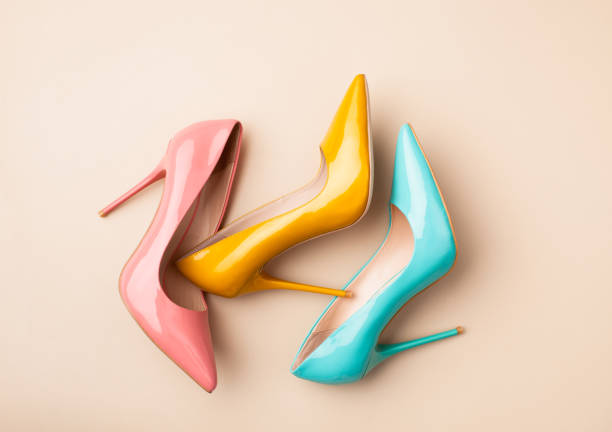Introduction
In 2025, South Africa’s shoe retail market is changing fast. For store owners, understanding the difference between ladies’ shoe suppliers and shoe wholesale distributors is key to managing stock effectively. This guide explains how these suppliers impact inventory and helps you make smart choices for your business.
The Rise of Ladies Shoes Suppliers in South Africa
Ladies’ shoe suppliers play an important role in the South African retail footwear market. They offer a wide range of shoes, from casual flats to formal heels, to meet the diverse tastes of women.
1. Advantages of Working with Ladies’ Shoe Suppliers
- Direct Access to Manufacturers: Get better prices and authentic products.
- Exclusive Designs: Stand out from competitors with unique styles.
- Faster Restocking: Quick supply ensures popular styles stay available.
2. Market Trend
Demand for women’s shoes in South Africa has been growing about 5% per year over the past five years. This growth is driven by changing fashion trends and a rising middle class with more disposable income.
Understanding Ladies Shoe Suppliers
A ladies shoe supplier is a company or individual that produces or sources footwear and sells it to retailers. Suppliers usually focus on manufacturing, design, and delivering shoes in bulk to businesses.
Key Benefits of Working with Shoe Suppliers:
- Access to Trends: Suppliers often follow fashion trends closely, offering the latest styles.
- Bulk Pricing: Buying directly from suppliers can reduce costs per unit.
- Customization Options: Many suppliers allow branding or custom designs for businesses.
- Reliable Supply: Suppliers maintain inventory levels to meet retail demands.
- Variety: From flats, heels, boots, sandals, to sneakers, suppliers cover all styles.
By partnering with the right suppliers, retailers can offer their customers a variety of choices and ensure that their store always has fresh stock.
Understanding Wholesale Distributors
Wholesale distributors act as intermediaries between suppliers and retailers. They purchase shoes in bulk from manufacturers and sell them in smaller quantities to businesses.
Advantages of Wholesale Distributors:
- Convenient Ordering: Distributors often carry multiple brands, making it easier to order from one source.
- Lower Minimum Orders: Unlike suppliers, distributors allow smaller quantities, which is ideal for new businesses.
- Fast Delivery: Distributors usually have inventory ready for quick shipping.
- Flexible Payment Terms: Some distributors offer credit or flexible payment options.
- Consistent Quality: Reputable distributors maintain product quality across all stock.
Wholesale distributors are perfect for small or medium-sized retailers who want variety without investing heavily in large inventories.
Key Differences Between Suppliers and Distributors
| Feature | Ladies Shoe Supplier | Wholesale Distributor |
|---|---|---|
| Source | Manufactures shoes | Purchases from suppliers |
| Order Size | Usually large | Medium to small |
| Pricing | Lower unit cost | Slightly higher than supplier |
| Variety | Limited to their designs | Multiple brands and styles |
| Customization | Often available | Rarely available |
Understanding these differences helps retailers decide whether to partner with a supplier, a distributor, or both depending on their business model.
The Role of Shoes Wholesale Distributors in Modern Retail
Shoes wholesale distributors serve as intermediaries between manufacturers and retailers, providing bulk quantities of footwear to various retail outlets.
1. Benefits of Engaging with Shoes Wholesale Distributors
- Bulk Purchasing Power: Distributors offer competitive pricing on bulk purchases, reducing per-unit costs for retailers.
- Diverse Product Range: They provide access to a wide array of brands and styles, catering to different customer segments.
- Inventory Management Support: Many distributors assist retailers with inventory forecasting and management, ensuring optimal stock levels.
2. Industry Trends
The wholesale distribution model has adapted to the digital age, with many distributors establishing robust online platforms. This shift enables retailers to place orders, track shipments, and manage inventory remotely, enhancing operational efficiency.
Comparative Analysis: Ladies Shoes Suppliers vs. Shoes Wholesale Distributors
| Feature | Ladies Shoes Suppliers | Shoes Wholesale Distributors |
| Product Range | Specialized in women’s footwear | Broad range including men’s and kids’ |
| Pricing | Competitive for direct purchases | Discounts on bulk orders |
| Customization | High (exclusive designs) | Limited customization options |
| Supply Chain | Direct from manufacturers | Through intermediaries |
| Order Volume | Smaller minimum order quantities | Larger bulk orders |
Understanding these differences can help you align your sourcing strategy with your business needs.
Case Study: Jumbo Footwear A Leading Distributor
Jumbo Footwear stands out as a prominent shoes wholesale distributor in South Africa. They offer an extensive range of footwear, including popular brands and exclusive lines.
Why Retailers Choose Jumbo Footwear
- Extensive Product Selection: Retailers have access to a vast array of styles and sizes, catering to diverse customer preferences.
- Reliable Supply Chain: Jumbo Footwear’s established relationships with manufacturers ensure consistent product availability.
- Competitive Pricing: Their bulk purchasing power translates to cost savings for retailers.
By partnering with Jumbo Footwear, retailers can streamline their inventory processes and meet customer demands effectively.
The Digital Transformation of Footwear Retail
The integration of digital technologies has significantly impacted footwear retail in South Africa.
1. E-Commerce Growth
Online sales of footwear have seen a substantial rise, with reports indicating that e-commerce now accounts for over 20% of total footwear sales in the country. Retailers are increasingly adopting online platforms to reach a broader customer base.
2. Inventory Management Systems
Advanced inventory management systems allow retailers to track stock levels in real-time, forecast demand, and automate reordering processes. This technological advancement reduces the risk of overstocking or stockouts.
Tips for Choosing the Right Shoe Supplier
- Check Reputation: Look for suppliers with positive reviews and reliable delivery records.
- Inspect Quality: Order samples to ensure materials and craftsmanship meet standards.
- Consider Lead Time: Choose suppliers who can deliver products on time, especially for seasonal collections.
- Look for Variety: A supplier offering multiple styles allows you to cater to different customer preferences.
- Negotiate Terms: Discuss pricing, payment schedules, and return policies before committing.
A strong supplier relationship ensures a steady flow of trendy and high-quality footwear to keep customers coming back.
Tips for Choosing the Right Wholesale Distributor
- Evaluate Stock Variety: Distributors with multiple brands help you stock diverse products.
- Check Minimum Order Quantities: Ensure they match your budget and storage capacity.
- Assess Delivery Speed: Fast shipping is essential to keep your shelves stocked.
- Review Pricing: Compare distributor pricing with suppliers to ensure profitability.
- Verify Authenticity: Work with distributors who provide genuine, high-quality shoes.
Selecting the right distributor simplifies inventory management and reduces risks associated with overstock or unsold products.
Managing Your Inventory Effectively
Good inventory management is key to running a successful shoe business. Here are some strategies:
- Track Sales Patterns: Identify which styles sell fastest and stock accordingly.
- Seasonal Planning: Stock summer sandals or winter boots based on upcoming seasons.
- Avoid Overstocking: Excess inventory ties up capital and may lead to unsold stock.
- Use Inventory Software: Digital tools help track stock levels, orders, and sales trends.
- Build Strong Relationships: Communicate regularly with suppliers and distributors for updates on new arrivals and trends.
Effective inventory management ensures your store remains profitable and responsive to market demand.
Conclusion
Ladies shoe suppliers and wholesale distributors play a critical role in the success of footwear businesses. Suppliers provide access to bulk, trendy, and customizable shoes, while distributors offer convenience, variety, and flexible order options.
Understanding the differences between the two helps retailers make informed decisions for stocking their stores efficiently. Effective inventory management, smart ordering strategies, and strong supplier relationships are key to maintaining a profitable and attractive inventory. By carefully selecting partners and keeping up with trends, retailers can boost sales, satisfy customers, and grow their footwear business confidently.
Summary
In 2025, South African shoe stores work with two main types of suppliers: ladies’ shoe suppliers and shoe wholesale distributors. Both have benefits that affect how you manage your stock.
- Ladies’ Shoe Suppliers: Offer specialized shoes, direct access to manufacturers, and exclusive designs—great for niche markets.
- Shoe Wholesale Distributors: Provide bulk buying, a wide variety of shoes, and help with logistics—ideal for stores that want more choice.
Partnering with trusted suppliers like Jumbo Footwear can help you manage inventory better, meet customer needs, and grow your store successfully in a changing market.
Visit life conceptual for more blogs!










